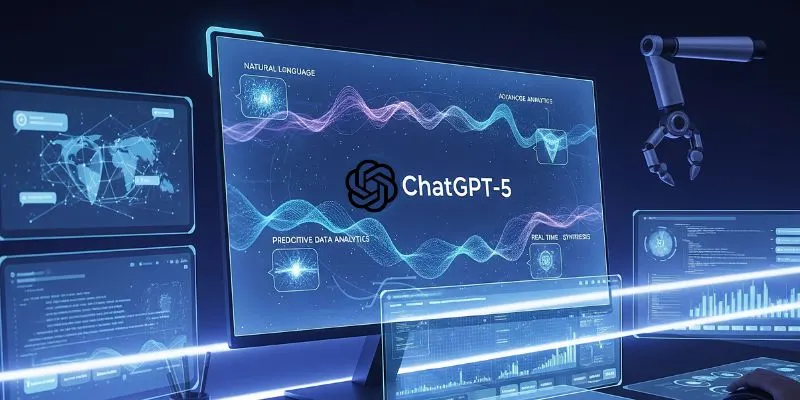If you love chess, technology, and a good old-fashioned Silicon Valley rivalry, this summer’s Kaggle AI Chess Exhibition delivered all three in spectacular fashion! OpenAI’s o3—fresh from its own retirement party thanks to the recent GPT-5 launch—delivered a flawless 4-0 victory against Elon Musk’s xAI Grok 4, claiming the crown as the tournament’s first general-purpose AI chess champion. But the real drama unfolded both on and off the virtual board.
AI Chess Face-off: Altman vs. Musk
The stakes of this showdown went well beyond pawns and queens. Sam Altman and Elon Musk, once OpenAI co-founders, have evolved into tech adversaries. Now, their headline-grabbing business beef played out in neural networks rather than negotiations. The final round saw Musk’s Grok 4 repeatedly blunder, losing its queen multiple times—prompting world chess champion Magnus Carlsen to compare the model’s play to “kids’ games,” estimating its skill at a meager 800 chess rating (chess fans know: that’s rough) compared to o3’s impressive 1,200.
The rivalry even spilled onto social media, as Musk shrugged off the defeat, insisting xAI had “spent almost no effort on chess” and calling Grok’s performance a “side effect” at best.
What Made This Chess Tournament Historic?
Unlike classic chess engines—think Stockfish or Deep Blue—this contest featured eight of the world’s top general-purpose large language models. These weren’t optimized for chess. Instead, they relied on their broader reasoning abilities, self-taught strategies, and internet-trained wits. The Google-owned Kaggle platform was chosen as neutral ground, hosting three days of head-to-head matches between artificial intelligence (AI) titans like OpenAI, xAI, Google, Anthropic, and upstart Chinese developers DeepSeek and Moonshot AI.
Google’s Gemini 2.5 Pro clinched third place after besting OpenAI’s o4-mini. But the show really belonged to o3, which ended the event undefeated.
Inside the Tournament Format: Reasoning Over Rote
Forget hours of human training—these models had to figure out chess from scratch without hard-coding classic openings or tactics. Tournament rules banned specialized chess engines, forcing all entrants to play using knowledge drawn from general internet data and their own internal logic.
Matches were hosted online, and featured commentary from grandmasters like Hikaru Nakamura and Magnus Carlsen, who dunked on Grok’s “unrecognizable” play and praised o3’s methodical strategy.
Why Do AI Models Compete in Chess?
Chess has long been a benchmark for measuring computer intelligence and progress. Ever since IBM’s Deep Blue toppled Garry Kasparov in 1997, AI has evolved from specialized machines to flexible, multi-purpose models. Today, tournaments like this one reveal not just which AI is better at chess, but which can creatively solve new problems—they’re testing adaptability, reasoning, and the boundaries of what modern AI can do.
What Does This Mean for the Future of AI?
While o3’s win underscores OpenAI’s technical edge (for now), the event highlighted major gaps between language models and chess engines—think strategy, not memorization. Grok’s missteps reflect the challenges of teaching general AI to master highly structured tasks. Magnus Carlsen summed it up with trademark snark: “Hope everyone feels better about their games after watching this”—reminding us that, for all our clever code, chess mastery is still a steep climb for machines.
Look for more tournaments as AI companies try to prove their mettle in reasoning, planning, and (of course) beating each other at their own game.
How did OpenAI’s o3 defeat Elon Musk’s Grok 4 in the AI chess final?
OpenAI’s o3 dominated Grok 4 through consistently accurate and strategic play, maintaining a move accuracy rate above 91% during the tournament. In contrast, Grok 4 repeatedly blundered crucial pieces—including multiple queens—and never found its rhythm in the decisive matches. Expert commentators and chess grandmasters cited Grok’s lack of disciplined tactical understanding and poor piece management, which allowed o3 to secure checkmates in all four games without conceding a single match. On social media, Elon Musk attributed Grok’s weak result to xAI’s minimal focus on chess, labeling the loss a “side effect.” In the end, it was disciplined reasoning and pattern recognition—not brute memorization or prior chess expertise—that powered OpenAI’s sweep.
Whether you’re watching for drama, strategy, or the clash of tech egos, Kaggle’s AI chess showdown offered a glimpse into the ever-evolving world of artificial intelligence. Stay tuned—these machines have plenty more moves to make!














